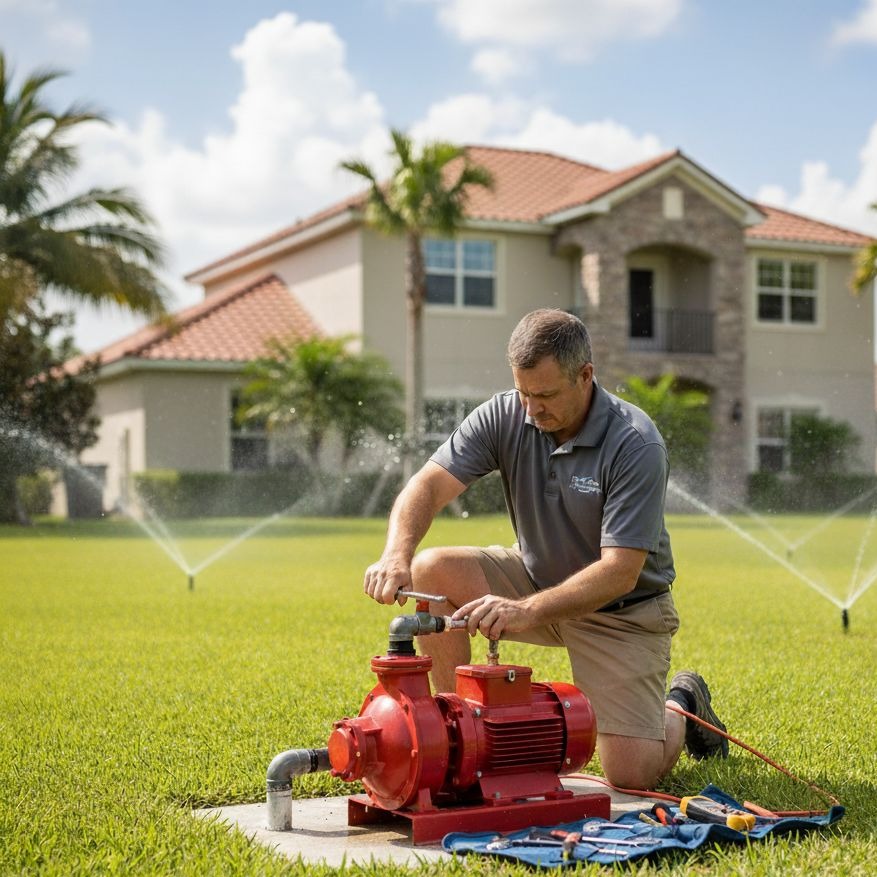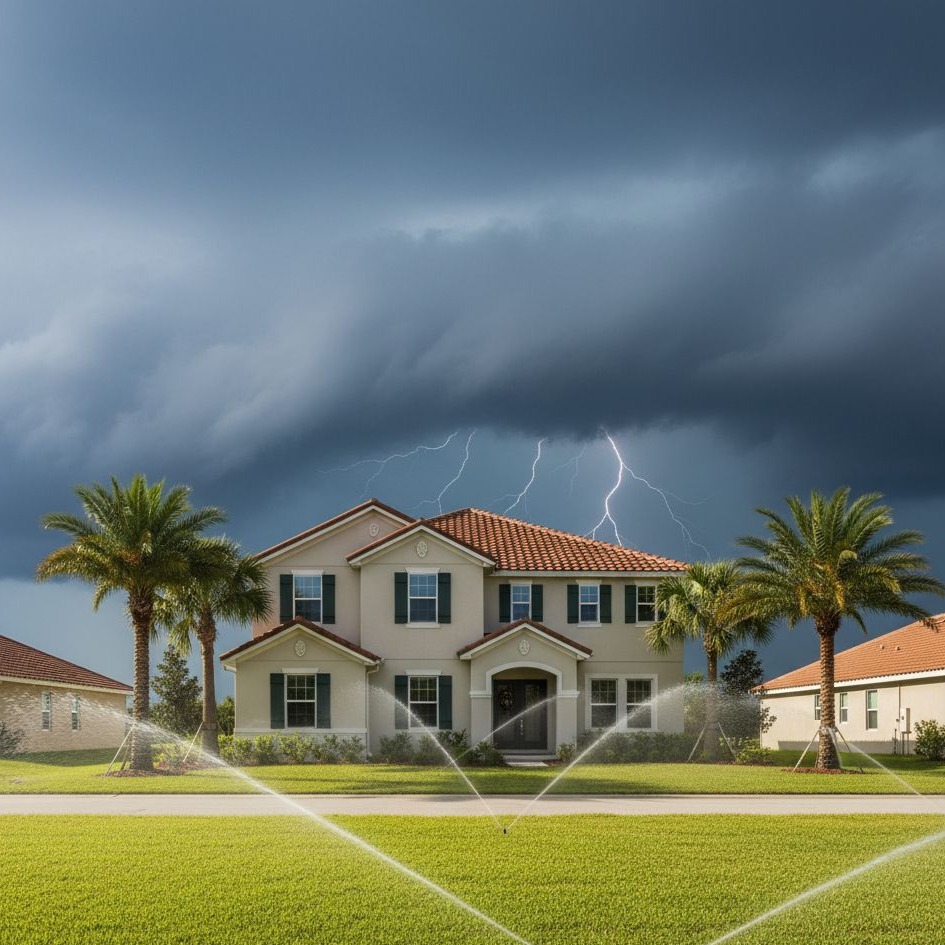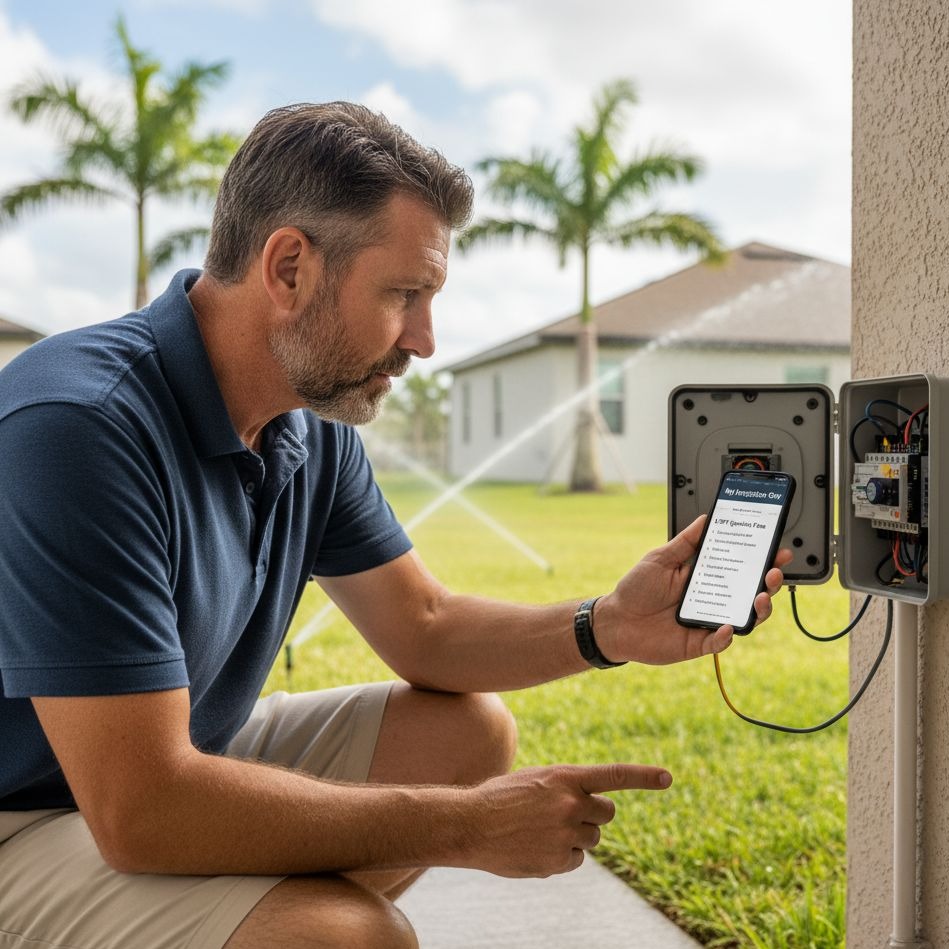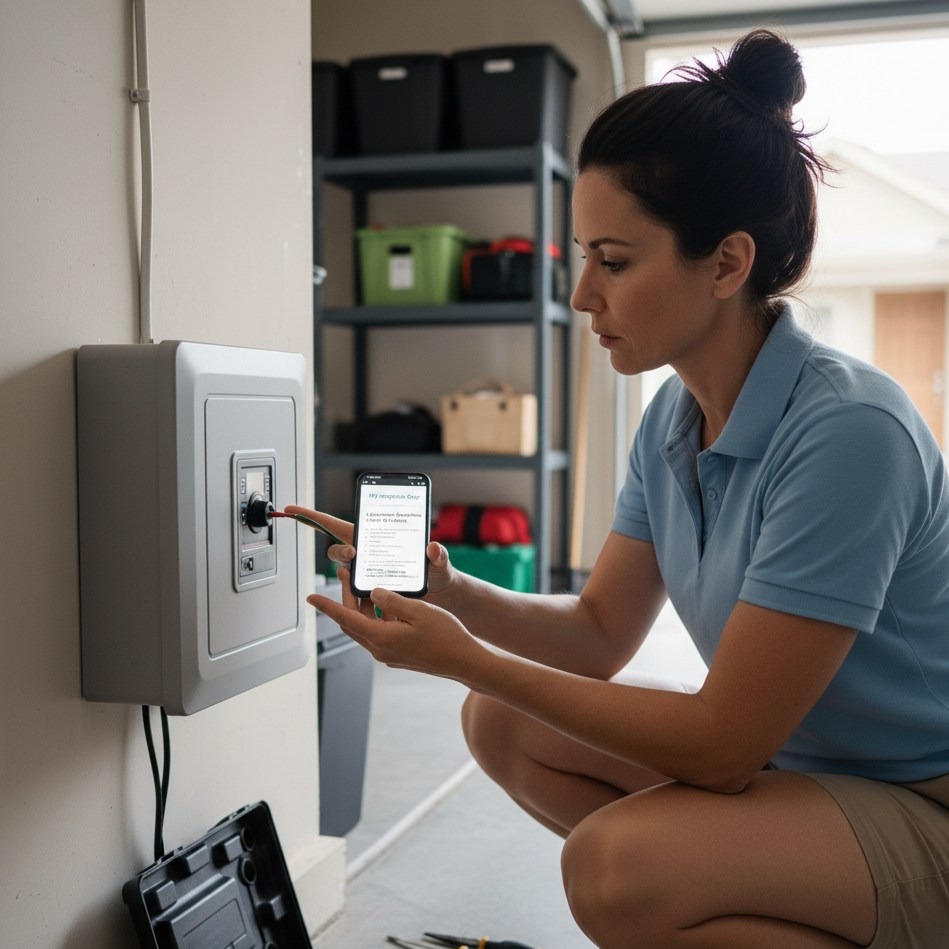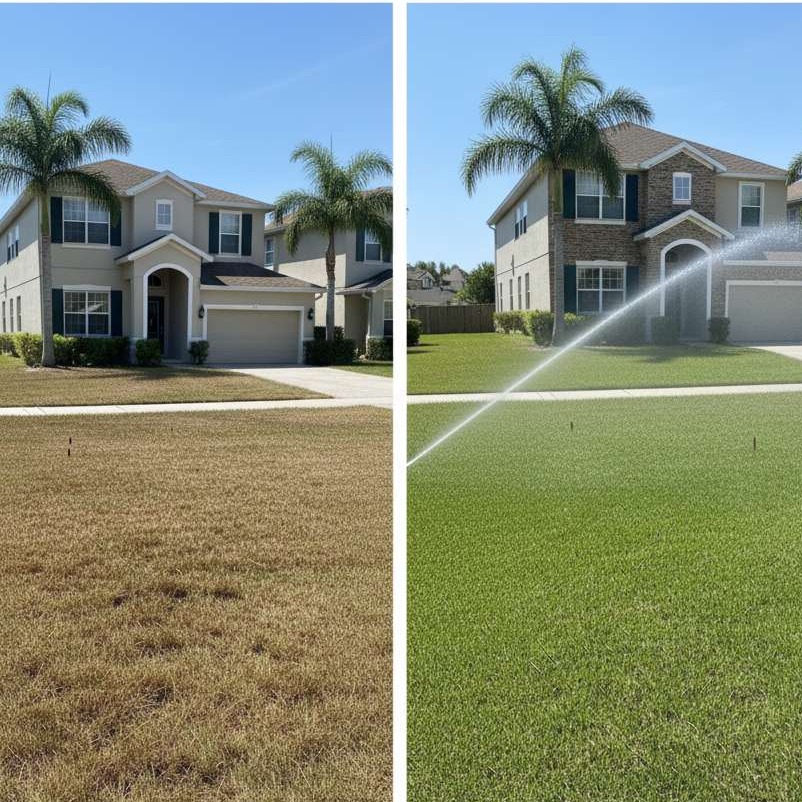
Signs Your Irrigation Pump Needs Professional Service
Your sprinkler heads should spray with consistent force across all zones. Weak coverage in multiple areas means your pump lost pressure. You might hear grinding, clicking, or loud humming from the pump housing. These sounds signal worn bearings or damaged impellers inside the motor.
Some zones may refuse to turn on during scheduled watering times. The pump motor might run without stopping or fail to start at all. You could spot water pooling around the pump base or see rust on connections. Your electric bill may jump $30 to $50 monthly with no change in your watering schedule.
Palm Coast's sandy soil drains fast and requires frequent watering cycles. Your pump works harder here than in clay-soil regions. The high water table adds pressure that wears seals and impellers down faster. Most pumps show these warning signs 6 to 18 months before total failure.
Commercial properties with large irrigated landscapes face bigger problems when pumps fail. Brown patches hurt your business curb appeal within one week. Early diagnosis saves you from emergency repairs during April and May dry season. We catch small issues before they become $1500 to $2,000 replacements.
